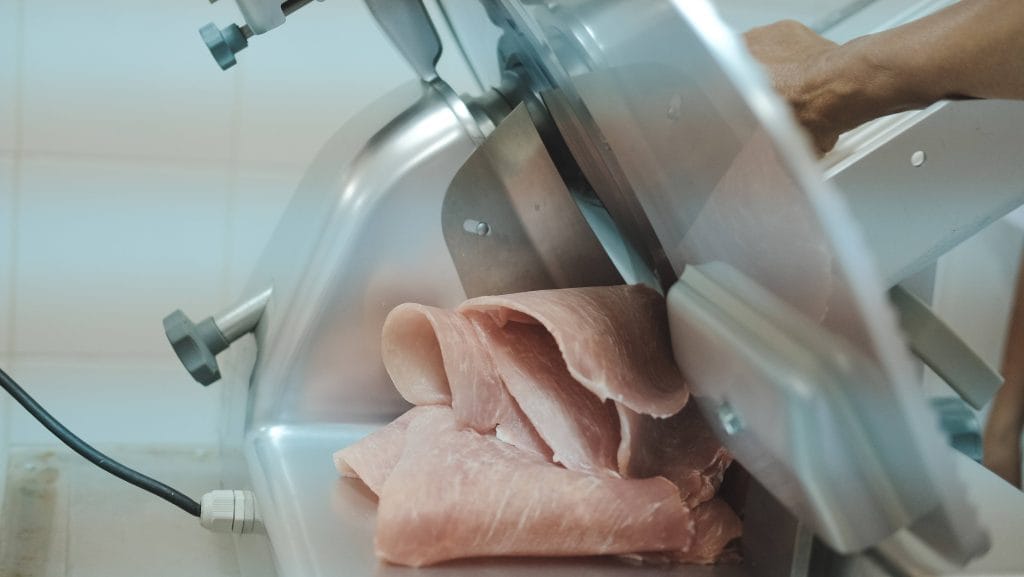Overview
Listeria infection is a foodborne bacterial illness that can be very serious for pregnant women, people older than 65 and people with weakened immune systems. It's most commonly caused by eating improperly processed deli meats and unpasteurized milk products.
Healthy people rarely become ill from listeria infection, but the disease can be fatal to unborn babies, newborns and people with weakened immune systems. Prompt antibiotic treatment can help curb the effects of listeria infection.
Listeria bacteria can survive refrigeration and even freezing. So people who are at higher risk of serious infections should avoid eating the types of food most likely to contain listeria bacteria.
Symptoms
If you develop a listeria infection, you might have:
- Fever
- Chills
- Muscle aches
- Nausea
- Diarrhea
Symptoms might begin a few days after you've eaten contaminated food, but it can take 30 days or more before the first signs and symptoms of infection begin.
If the listeria infection spreads to your nervous system, signs and symptoms can include:
- Headache
- Stiff neck
- Confusion or changes in alertness
- Loss of balance
- Convulsions
Symptoms during pregnancy and in newborns
During pregnancy, a listeria infection is likely to cause only mild signs and symptoms in the mother. The consequences for the baby, however, can be devastating — the baby can die in the womb or have a life-threatening infection within a few days of being born.
Signs and symptoms of a listeria infection in a newborn can be subtle, but can include:
- Little interest in feeding
- Irritability
- Fever
- Vomiting
- Difficulty breathing
When to see a doctor
If you've eaten a food that's been recalled because of a listeria outbreak, watch for signs or symptoms of illness. If you have a fever, muscle aches, nausea or diarrhea, contact your doctor. The same goes for illness after eating a potentially contaminated product, such as foods made with unpasteurized milk or poorly heated hot dogs or deli meats.
If you have a high fever, severe headache, stiff neck, confusion or sensitivity to light, seek emergency care. These signs and symptoms can indicate bacterial meningitis, a life-threatening complication of a listeria infection.
Causes
Listeria bacteria can be found in soil, water and animal feces. People can get infected by eating the following:
- Raw vegetables that have been contaminated from the soil or from contaminated manure used as fertilizer
- Contaminated meat
- Unpasteurized milk or foods made with unpasteurized milk
- Certain processed foods — such as soft cheeses, hot dogs and deli meats that have been contaminated after processing
Unborn babies can contract a listeria infection from the mother.
Risk factors
Pregnant women and people who have weak immune systems are at highest risk of contracting a listeria infection.
Pregnant women and their babies
Pregnant women are much more susceptible to listeria infections than are other healthy adults. Although a listeria infection might cause only a mild illness in pregnant women, consequences for their babies can include:
- Miscarriage
- Stillbirth
- Premature birth
- A potentially fatal infection after birth
People who have weak immune systems
This category includes people who:
- Are older than 65
- Have acquired immunodeficiency syndrome (AIDS)
- Are receiving chemotherapy
- Have diabetes or kidney disease
- Take high-dose prednisone or certain rheumatoid arthritis drugs
- Take medications to block rejection of a transplanted organ
Complications
Most listeria infections are so mild they can go unnoticed. However, in some cases, a listeria infection can lead to life-threatening complications, including:
- Generalized blood infection
- Inflammation of the membranes and fluid surrounding the brain (meningitis)
Prevention
To prevent a listeria infection, follow simple food safety guidelines:
- Keep things clean. Wash your hands thoroughly with warm, soapy water before and after handling or preparing food. After cooking, use hot, soapy water to wash the utensils, cutting boards and other food preparation surfaces.
- Scrub raw vegetables. Clean raw vegetables with a scrub brush or vegetable brush under plenty of running water.
- Cook your food thoroughly. Use a food thermometer to make sure your meat, poultry and egg dishes are cooked to a safe temperature.
Precautions for people particularly at risk
If you're pregnant or you have a weak immune system, be particularly cautious about listeria. Take additional precautions with these types of foods:
- Soft cheeses and Mexican-style cheeses. Don't eat soft cheeses such, as feta, brie, Camembert or blue cheese, or Mexican-style cheeses such as queso blanco and queso fresco, unless it's clear from the packaging that the product was made using pasteurized milk.
- Hot dogs and deli meats. Avoid these unless they're reheated until steaming hot. Keep fluid from hot dog packages away from other foods, utensils and food preparation surfaces. Wash your hands after handling these products.
- Meat spreads. Don't eat refrigerated meat spreads. Canned or shelf-stable — meaning they can be safely stored at room temperature — meat spreads are acceptable. Refrigerate after opening.
- Smoked seafood. These products can be labeled as nova style, lox, kippered or jerky. It's OK to eat them in cooked dishes. Canned or shelf-stable smoked seafood is acceptable.
- Raw or lightly cooked sprouts. Cook sprouts of any kind thoroughly.

